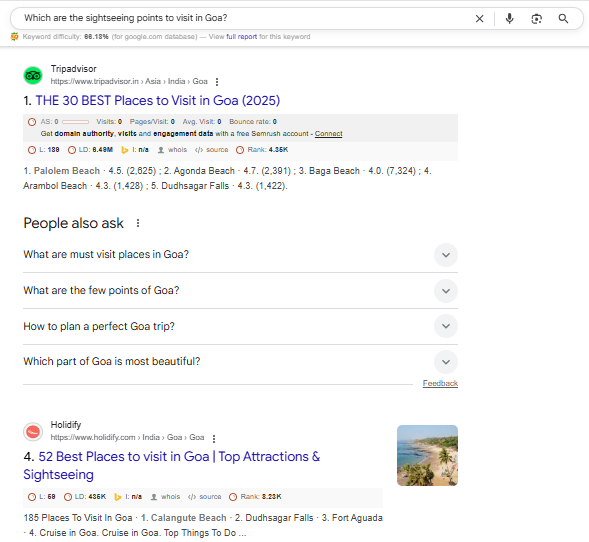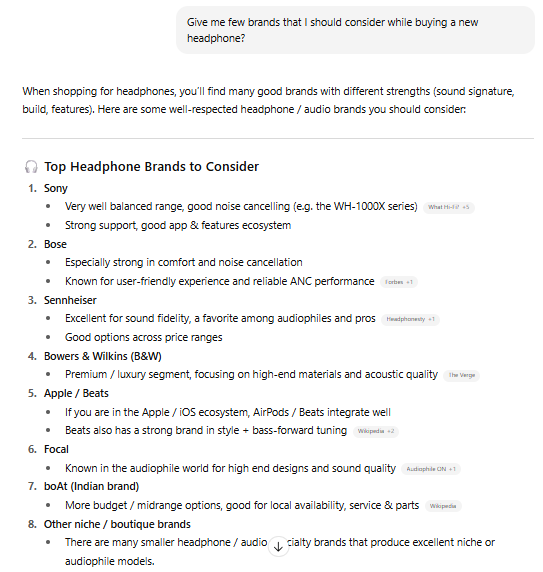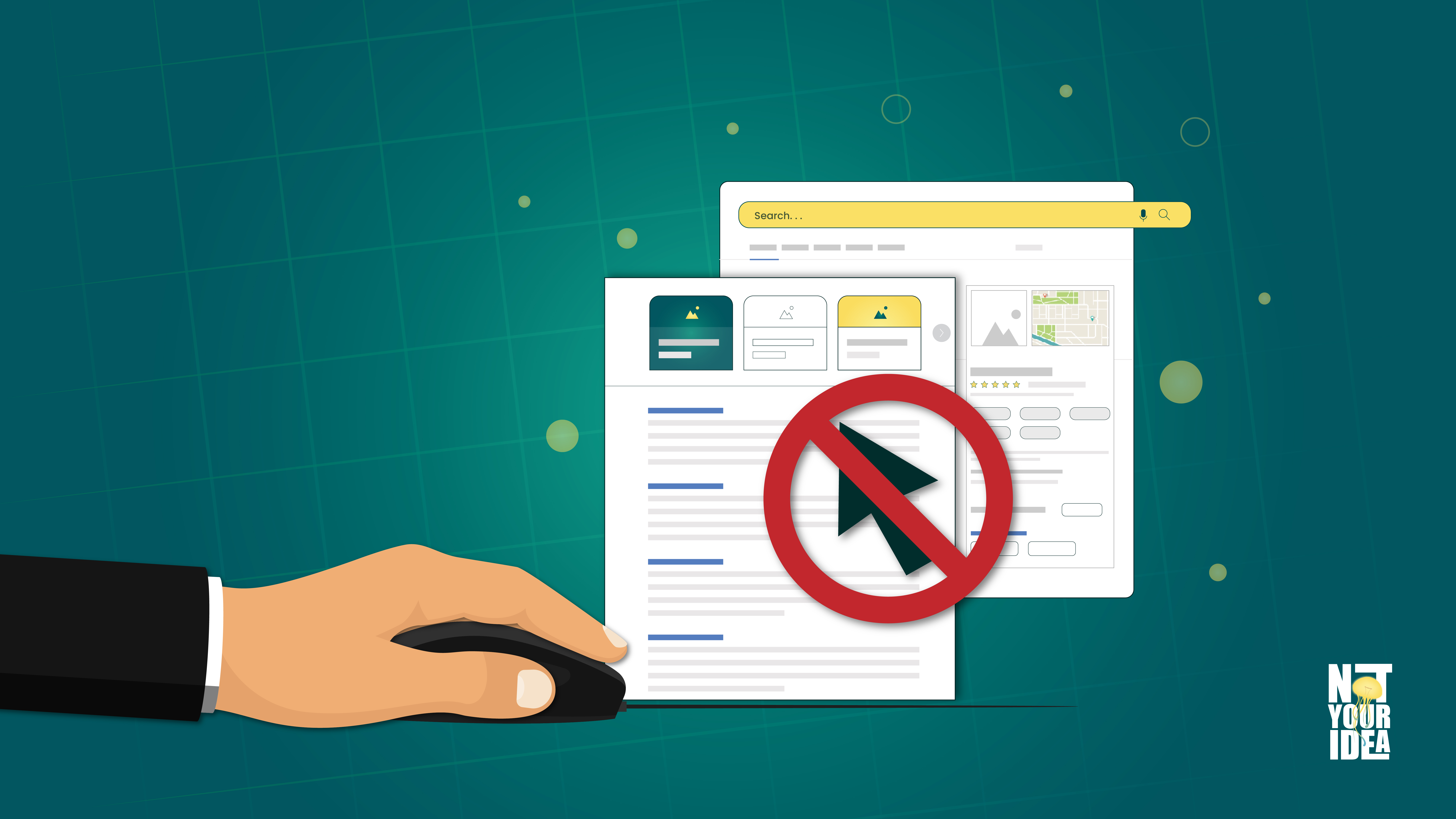The digital world is experiencing a seismic shift, and a new power player is rewriting the rules: Large Language Models (LLMs) like ChatGPT, Gemini, and Copilot. People are no longer just "searching" but are getting the solutions for their queries through conversation. They're asking complex questions and getting direct, synthesized answers from AI.
This is not a far-off trend; it is happening now, and it has huge business implications. One startling study cited by Forbes found that conversion rates from LLM-driven interactions can be up to 9 times higher than traditional search. When an AI recommends you, people listen and they act. This means your brand's reputation is now being judged by two very different referees. To win, you need to understand how each one keeps score. Let's dive in.
How Do Search Engines Evaluate Your Brand's Reputation?
Think of the search engine like a meticulous librarian. Its job is to organize the entire internet to give users the most relevant and trustworthy results. This process is built on a complex set of ranking factors that have been refined for decades. Here are some of the most important ones:
- Backlinks (The Digital Endorsement): A backlink is a link from another website to yours. In the eyes of Google, a link from a reputable, high-authority site (like a major news outlet, a government research institution, or an industry leader) is a powerful vote of confidence. The more high-quality "votes" you have, the more authoritative your brand appears.
- E-E-A-T: This crucial acronym stands for Experience, Expertise, Authoritativeness, and Trustworthiness. Google’s algorithm actively seeks to determine if your content is credible. Is it a medical article written by a doctor? Is it a financial analysis backed by a certified professional? Your "About Us" page, author bios, and customer testimonials all contribute to building this trust signal.

- On-Page SEO and Content Freshness: Search engines scan your site’s content, title tags, and meta descriptions to understand what it’s about. They also reward fresh, regularly updated content, as it signals that your information is current and relevant.
- Core Web Vitals & Mobile-Friendliness: Have you ever clicked on a site that was slow to load or where buttons jumped around? That’s a poor user experience, and Google penalizes it. Core Web Vitals and mobile-friendliness ensure your site is fast, responsive, and easy to use, especially on a phone. This signals a professional, reliable brand.
How Do LLMs Generate Answers?
LLMs act like a super-intelligent research assistant. As explained by tech leaders like IBM and Snowflake, LLMs are built on "transformer models" that have been trained on vast amounts of text and data from across the internet.
At their core, they work by predicting the next word in a sequence, allowing them to generate stunningly human-like sentences. But beyond that, they have learned to weigh the importance of words, identify relationships between concepts, and understand context. Here’s how Large Language Models form an opinion about your brand:
- Data Synthesis: An LLM reads everything; Wikipedia pages, news articles, customer reviews, blog posts, forum discussions, and synthesizes it all. It does not just show you a negative review; it incorporates that review's sentiment into its overall summary of your brand.
- Sentiment Analysis: LLMs do not just read words; they understand the feeling behind them. They scan countless sources, which include conversations on Quora and Reddit, to determine if the overall chatter about your brand is positive, negative, or neutral.

- Entity Recognition: An LLM understands that your brand is a specific "entity." It connects all the information it can find about it, your products, key people, history, and official statements to build a comprehensive knowledge profile.
- Deeper Query Understanding: You can ask an LLM a complex question like, "Which small business accounting software is best for a freelancer who needs good mobile receipt tracking?" It understands every nuance of that query and synthesizes an answer based on what it has learned from all its sources.
Search Engines vs. LLMs: Key Differences for Your Reputation
Feature | Search Engines | Large Language Models |
Nature of Results | A ranked list of links. The user gets multiple perspectives and chooses which to trust. | A single, synthesized, conversational answer. The LLM presents its summary as the primary source of truth. |
Optimization | SEO (Search Engine Optimization): focuses on keywords, backlinks, and technical health to rank higher in the list. | AEO (Answer Engine Optimization) focuses on creating clear, factual, and topic-focused content that can be easily understood and synthesized by the AI. |
User Journey | A "multi-click" journey. Users click links to visit your website and learn more. | Often a "zero-click" journey. The user gets their answer without ever visiting your site, a major risk for traffic and lead generation. |
Error Type | May link to a biased or negative article, but the source is clearly identified. | "Hallucinations" & "False Amalgamation": The LLM can confidently state incorrect information or, more dangerously, blend facts with opinions and falsehoods from across the web into a single, authoritative-sounding but inaccurate summary. |
While both are "answer machines," their methods and the results they produce are profoundly different. Understanding this is critical for your strategy. The biggest difference? Control. With search engines, you have a chance to make your case directly on your website. With LLMs, you are relying on the AI to be a fair and accurate narrator of your brand’s story.
Takeaways For Brands: Making Content Visible on Search Engines and LLMs
So, how do you manage your reputation in this dual-engine world? You need a two-pronged strategy that combines classic SEO with new AEO principles.
1. Build Your Factual, Authoritative Footprint (For Both)
This is the non-negotiable foundation. Both Google and LLMs prize trustworthy, authoritative information.
- Publish Factual, Expert-Driven Content: Write for humans first. Create content that genuinely helps your audience and showcases your expertise (E-E-A-T). This builds trust with Google and provides high-quality, positive material for LLMs to learn from.
- Establish Your Official Channels: According to brand visibility experts, it's crucial to control your own "source of truth." Create and maintain a Wikipedia page, claim and complete your Google Business Profile, and get listed in trusted industry directories. LLMs heavily rely on these structured, factual sources.
- Manage Online Reviews: Actively encourage and respond to reviews on all platforms, such as social media platforms, community platforms, etc, as these are some of the ways for brands to connect with consumers and manage their online reputation. This positive sentiment and engagement provide excellent raw material for sentiment analysis of LLM.
2. Optimize for Answer Engines (AEO for LLMs)
Make it incredibly easy for an AI to understand and accurately represent you.
- Embrace FAQs and Listicles: LLMs love clearly structured content. Create comprehensive FAQ pages that directly answer your customers' most common questions. Listicles (like "Top 5 Benefits of...") are also easy for AI to parse and present in its answers.
- Use Structured Data (Schema Markup): This is code that acts like "labels" for your website content. It's invisible to humans but tells machines exactly what your content is: a product, a review, an event, or an organization. This removes all guesswork for the AI.
- Create Prompt-Friendly Content: Think about the questions your customers would ask an AI about your industry or product, and create content that directly answers them. Use clear, descriptive headings phrased as questions.
3. Double Down on Smart SEO (For Search Engines)
Classic SEO is still the backbone of discoverability.
- Master Your Keywords: Use tools for keyword research to understand what your audience is searching for and naturally weave those terms into your helpful content.
- Conduct Competitor Analysis: See what your top competitors are ranking for. This can reveal content gaps and opportunities to create something better and more comprehensive.
- Pursue Quality Backlinks: Reach out to respected sites in your niche for guest posting or collaborations to earn those valuable "votes of confidence."
Summing Up
The way we find information is evolving faster than ever, but the core of a strong reputation remains timeless: trust, authority, and value. The rise of LLMs does not mean SEO is dead. It means your strategy needs to expand. By combining the proven power of SEO with the forward-thinking principles of AEO, you aren't just protecting your reputation; you are actively building a brand that is visible, respected, and ready to win in the new age of digital discovery.
FAQs
What is the Biggest Strength of LLMs?
The biggest strength of LLMs is that they provide the most accurate information to users based on the prompts submitted to the LLMs.
What Are the Three Main Functions of Search Engines?
The three main functions of LLMs are crawling, indexing, and ranking, which help search engines rank websites.
How Do You Evaluate the Quality of an LLM?
The quality of an LLM can be evaluated based on the response that is given by the LLM towards the prompt that is being asked by the user.
Will LLMs Replace Google?
No, LLMs will not replace Google, but it is an addition for one to add to their strategy. One can rank their website on LLMs as well as on Google to reach their target audience.
Do FAQs Make a Difference in Ranking on a Website and an LLM?
Yes, FAQs do make a difference in ranking on a Search Engine, and LLM, as it will help capture a specific keyword or content that matches users' requirements.



